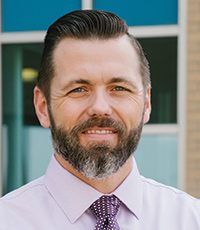 “If you are struggling with weight loss or you have developed medical issues related to your weight, you should reach out to a weight-loss surgeon and at least hear all of the options,” says Bo Neichoy, MD, FACS, director of Northwest’s bariatric surgery program. This medical practice area continues to advance, and surgery can be life-changing for many patients. Here, Dr. Neichoy answers frequently asked questions.
“If you are struggling with weight loss or you have developed medical issues related to your weight, you should reach out to a weight-loss surgeon and at least hear all of the options,” says Bo Neichoy, MD, FACS, director of Northwest’s bariatric surgery program. This medical practice area continues to advance, and surgery can be life-changing for many patients. Here, Dr. Neichoy answers frequently asked questions.
Q: How much weight can I expect to lose?
Results vary, so it’s best to meet with a surgeon to discuss your individual goals. Generally, with the more common procedures, patients can expect to lose 60 to 90 percent of their excess body weight. We encourage patients to focus on “wins” such as walking without pain or improving/resolving conditions like diabetes or sleep apnea.
Q: What is weight-loss surgery like?
Having surgery can be very intimidating, and the thought of pain and associated issues can be scary. Thanks to advanced techniques, weight-loss surgery has become much more tolerable. Most procedures are laparoscopic (minimally invasive), and with modern pain management and prevention pathways, recovery has improved drastically.
Q: What can I eat after the surgery?
Most surgeons have a protocol to help patients transition back to a regular diet. This can be challenging for some patients at first; but because of the surgery, your appetite will be suppressed for a while and this makes the first few weeks much more tolerable. Support groups can be a good place to talk with others and share ideas.
Q: How do I choose a bariatric program?
The best programs focus on outcomes and education, and both of these feed on each other. The more educated patients are, the better they are going to do. A good program will de-emphasize the surgery and emphasize the healthy lifestyle that comes with it. Long-term success is very dependent on viewing this as permanent and not a short-term experience.

